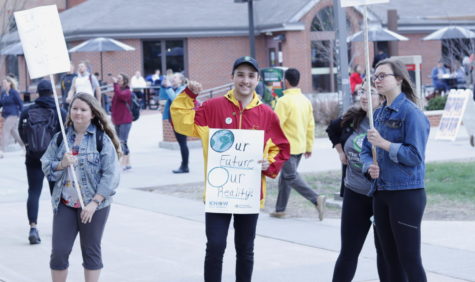Graduate students face different housing struggles
December 1, 2014
Undergraduate students will have the opportunity to change their living arrangements next semester. Some undergraduates may change dorms, but graduate students have different housing options.
Obtaining graduate student housing may seem like an entirely different process, but Peter Englin, director of the Department of Residence, said the process is exactly the same.
“The way our process works is, the folks who have first opportunity to contract with us are the ones who currently live with us,” Englin said. “First-come, first-serve is the way we’ve structured the housing process.”
On-campus housing is available to any student, including international and graduate students. All 352 graduate students who applied for on-campus housing this semester were able to be accommodated.
Nemisha Khosa, graduate student in supply chain and information systems, lives on campus in Maricopa.
Khosa, an international student who received her undergraduate degree in India, took advantage of the host system offered by the Indian Student’s Association for three days before move-in day.
“I’m done with sharing, I need my own private space,” Khosa said. “On campus is nice because you only have to pay once. Off campus is hard because you have to furnish everything.”
While students like Khosa may choose to live on campus, many other graduate students prefer the full apartment experience, although there are limited options like that on campus.
Englin explained a problem his department faces with housing graduate students is not having any dedicated space for them.
“Prior to the enrollment growth, Buchanan, at one point before, would have been 25 [years] or older. Then it got switched to 23 or older, and then 19 or older and now we actually allow freshman to live there,” Englin said.
Englin said increased enrollment has caused a change in expectation for housing. Graduate students who have more experience with living on their own have different needs that residence halls aren’t able to provide.
Arko Mukherjee, president of the Graduate and Professional Student Senate, shared the same opinion about the different preferences of graduate students.
“The Department of Residence doesn’t have enough experience dealing with graduate students,”Mukherjee said. “Graduate students have different kinds of needs.”
Mukherjee said graduate students would need a quieter space, a place they could cook and enough room for those with families. The GPSS president also agreed with Englin about high enrollment’s affect on housing.
“The demand is greater than the supply,” Mukherjee said.
Because of this, the DOR is behind the curve with accommodating students’ housing requests.
Mukherjee also explained that many graduate students prefer apartment-style housing, which puts pressure on off campus housing.
“Students get frustrated with realty companies… their biggest customers are students,” Mukherjee said about off campus leasing.
Mukherjee acknowledged the companies’ need to profit, but suggested they establish a trust system with students where the monthly payment is broken down and explained.
If the high cost of living off campus were explained, Mukherjee thinks students would be more understanding and accepting of the costs.
As the DOR continues to improve housing, Peter Englin wants to ensure the DOR makes changes that will accommodate students in the long run.
“It has to be something students will want to pay for for the long term,” Englin said regarding any improvements his department may make.
For now, Englin is monitoring student data. “The best indicator is student action,” Englin said.
Englin is looking to see what options graduate students are currently choosing and why. He hopes for feedback about what the department could do to better serve them.
















